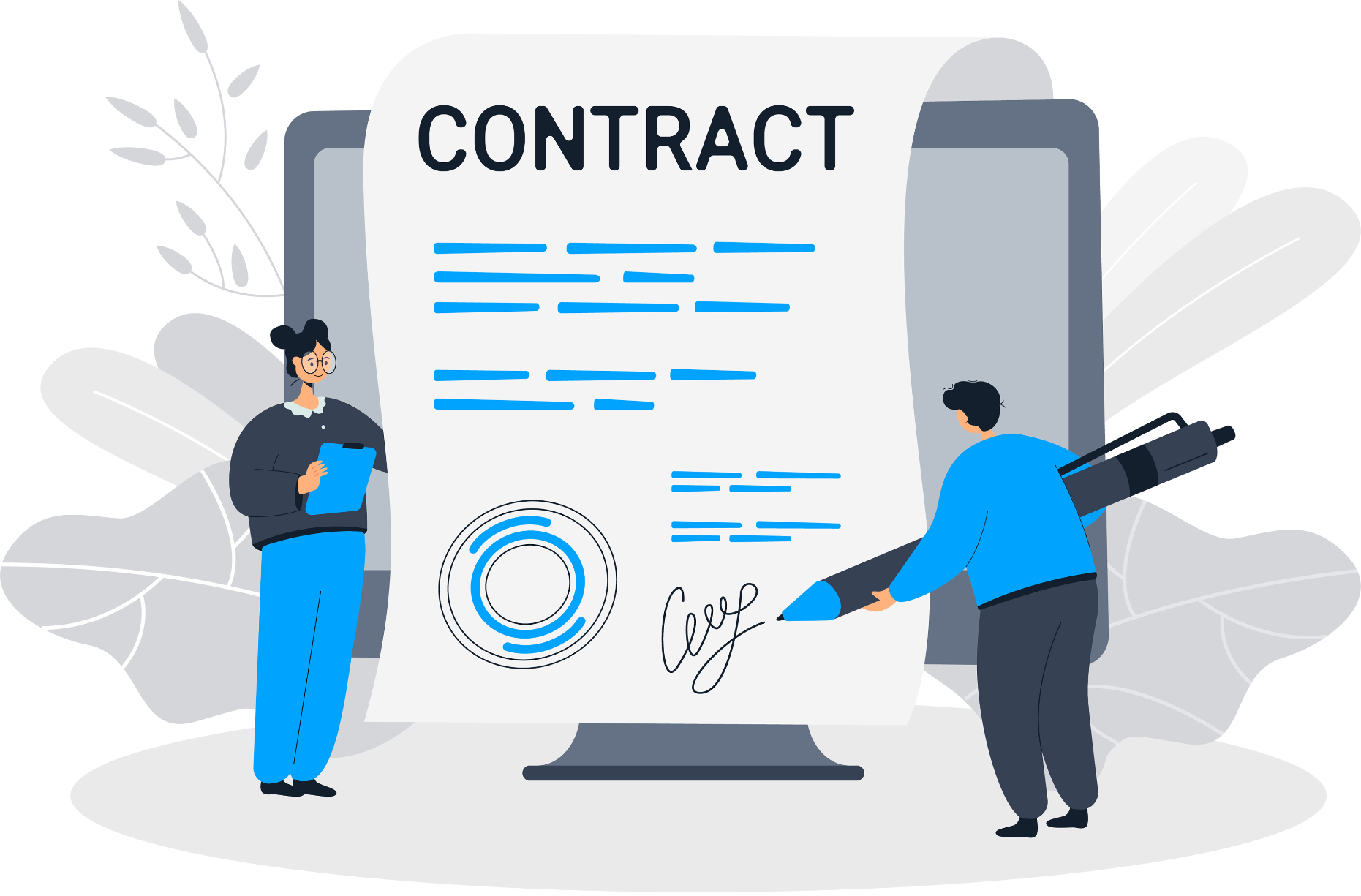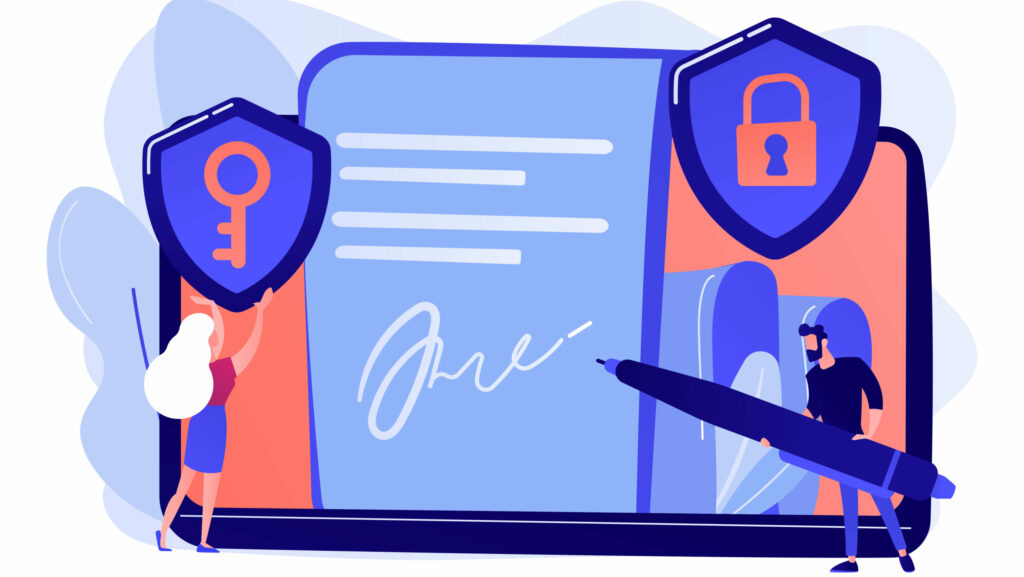Electronic signatures have changed how companies work in the fast-changing business world. With more people working from home these days, e-signatures have become super important for making things run smoothly and keeping everything legal.
This big move to doing things digitally has made businesses work better and kept documents safer. It’s key for any business that wants to do well while their team works remotely to understand how much e-signatures matter. By getting on board with electronic signature technology, they’re setting themselves up for success in today’s remote work environment by boosting operational efficiency.
The Rise of E-Signatures in the Digital Age
With more people working from home, electronic signatures have taken off. It’s like we’re stepping into a new chapter where doing things online is the norm. E-signatures have become super important for companies all over because they make signing and handling important documents easy, quick, and safe.
Thanks to this technology, businesses can keep things moving smoothly without slowing down or getting stuck in paperwork. By adding e-signatures into their routine, it’s easier than ever for them to get stuff done in our fast-moving digital world.
Understanding E-Signature Technology and Its Evolution
E-signature technology has changed the game, making it way easier for companies to do their thing online. At first, e-signatures were just a substitute for signing stuff by hand with pen and paper. But now, they’ve become super secure and efficient for signing all kinds of important documents without being there in person.
Thanks to better encryption and authentication methods, we can trust that these electronic signatures are legit and legal. This is especially handy when it comes to remote work because understanding how e-signature tech has grown helps us see how useful it can be in getting our jobs done from anywhere.
Why E-Signatures Have Become Essential in Today’s Business Landscape
In the fast-paced world of business today, more and more companies are depending on remote work and using digital tools. This shift has made electronic signatures super important. They make it easy to sign important papers without compromising on safety or efficiency.
By making business operations smoother, cutting down costs, and keeping sensitive information safe, e-signatures play a crucial role. With features that check who is signing and keep track of all the steps in the process, they’ve become key for businesses wanting to do well in a digital age.
Related Article: What Is ESign (ESignature)? How To E-Sign Documents Online?
Key Advantages of E-Signatures for Remote Work

With the help of electronic signatures, teams that work from different places can approve documents easily and quickly, making their operations more productive. By cutting down on paper usage, companies not only save money but also do their part for the planet. Electronic signatures keep important papers safe through encryption, which means there’s less chance someone will see sensitive data they’re not supposed to.
Since you can access these e-signatures from mobile devices, it creates a secure space for people working remotely to get things done without hassle. This smoothens out the entire process and makes sure everything is up to legal standards.
Enhancing Efficiency and Productivity Across Teams
By adding electronic signatures to your workflow, you’ll see a big jump in how quickly and smoothly things get done within your team. It makes the whole process of signing documents much simpler, letting everyone focus more on their main jobs instead of getting bogged down by paperwork.
With this setup, it’s easier and quicker to check off approval for important documents, speeding up all kinds of business processes. Plus, remote workers can easily sign papers from wherever they are without waiting around for physical copies to sign. This not only cuts out delays but also helps maintain a productive atmosphere for those working remotely.
Strengthening Document Security and Integrity
In the world of electronic signatures, keeping documents safe and sound is super important. By using top encryption techniques, e-signature solutions make sure that sensitive data stays protected all through the signing process.
With a focus on creating a safe environment, these tools prevent people who shouldn’t have access from getting in and offer strong ways to prove who you are. Audit trails built into electronic signature software keep an eye on every step taken, making it less likely for documents to end up where they shouldn’t be. This strict approach to security boosts confidence and trust in the whole signature process.
Reducing Paperwork and Operational Costs
By using electronic signatures, companies cut down a lot on paperwork and the costs of running things. Moving from old-school paper signatures to digital ones makes everything smoother by getting rid of the need for actual papers, printing stuff out, and scanning them.
This change doesn’t just save time; it also means spending less money on things like paper, ink, and sending documents through courier services. On top of that, electronic signatures make workflow better because they allow for quick approval and checking of documents. All in all, this leads to big savings when it comes to operating costs.
Related Article: Best Electronic Signature Software: Top 7 E-Sign Tools In 2024
Implementing E-Signatures in Business Workflow

To get e-signatures working well in your business, you need to pick the right electronic signature tool and make sure it fits perfectly into how things are done. When choosing one, look for features that make it easy to use, keep your data safe, and verify who’s signing.
To smoothly bring e-signatures into play, stick to some best practices like training everyone on how to use them effectively and tweaking templates for different documents. This way of doing things makes signing documents faster and cuts down on paper use, boosting operational efficiency while keeping everything secure online.
Step-by-Step Guide to Choosing the Right E-Signature Solution
When you’re on the lookout for an e-signature solution, kick things off by figuring out what your business needs. Think about important things like how safe it is, if it meets rules and standards, and whether it can work well with other systems you use. Dive into some research to see what’s out there—look at what each option offers and how much they cost. Make sure whatever you pick fits nicely with the way your team works now so everyone can switch over smoothly.
Check out how reliable the provider is and if their customer service is any good. Give the software a go yourself to see if it’s easy to use and accessible for everyone who needs it. Go for options that protect sensitive data using strong encryption methods—that’s super important! And don’t forget to think about tomorrow; make sure this tool can grow as your business does, covering all bases in terms of scalability.
Best Practices for Smooth Integration into Existing Systems
To make adding e-signatures to your current setup smooth, start with a good look at how things are done now. This helps you see where e-signatures can fit in. Make sure they’ll work well with the software you’re already using, either by hooking them up directly or using ready-made connections.
It’s also key to teach everyone on your team how to get the most out of this new tool. Keep an eye on how it’s going and fix any problems fast. Always keep data safe and follow rules closely during this whole process. By sticking to these best practices, blending e-signatures into your workflow will be straightforward.
Training Your Team for Optimal Utilization of E-Signatures
To make the most out of electronic signatures in your team, it’s really important to teach everyone how it works. Start by letting them know why e-signatures are key for making things run smoother and keeping stuff safe. Have some practical sessions so they get used to the tools and rules needed for signing documents electronically.
It’s crucial to stick to best practices when signing anything digitally. Ask for feedback often so you can sort out any problems as people get used to this new way of doing things. With solid training, your team will be able to use electronic signatures with ease, which means better workflow and sticking to rules.
Related Article: Breach Of Contract: Master How To Resolve Legal Disputes
Legal and Compliance Considerations of E-Signatures

Getting to know the rules about electronic signatures is important for any business. Making sure you follow the worldwide rules on electronic signatures keeps things legal and safe. It’s key to understand all the small details of how electronic signature technology works, especially when it comes to keeping sensitive information secure.
Keeping out people who aren’t supposed to get in is supercritical. You’ve got to make sure that your way of using electronic signatures not only follows the law but also lets you keep track of who signed what, just so everything stays above board. Sticking closely to these guidelines makes sure that signing documents electronically is both secure and legally okay. Following these rules well is at the heart of making e-signatures work right.
Understanding the Legal Framework Surrounding E-Signatures
For folks working from afar, e-signatures are legit thanks to rules like the ESIGN Act in the U.S. and the eIDAS Regulation over in Europe. These sets of rules make sure that when you sign something electronically, it’s just as good as pen on paper.
To play by these rules, there needs to be an agreement to do business online, a way out if someone changes their mind about an electronic deal, and steps to confirm who is signing off. Getting a grip on all this legal stuff is key for any business wanting to use e-signatures without hitting any bumps along the road of remote work or dealing with signatory matters.
Ensuring Compliance with Global E-Signature Regulations
With the rise of remote work, electronic signatures have become a go-to for their ease and speed. But companies need to get the hang of global rules about electronic signatures to make sure they’re doing things legally and safely.
Around the world, different places have their own sets of rules when it comes to using electronic signatures in business deals. These might cover how you prove who signed something (authentication), keeping data safe (encryption), and protecting personal information (data protection). For businesses that work across borders, getting up to speed with these laws is key so they can use electronic signature tech that meets all these requirements.
By sticking to these international rules on electronic signatures, companies can feel secure as they do business from anywhere. This lets them smooth out their processes, boost efficiency, and stay on the right side of the law no matter where they are working. Also, being known as a company that follows these regulations helps build trust with customers and partners alike which is great for growing globally in today’s remote work environment.
Related Article: International Data Privacy Laws: Stay Compliant
How Small Businesses Revolutionized Their Operations with E-Signatures

Small businesses have changed the game by using electronic signatures. By bringing in tools for signing electronically, they’ve made their work processes way better and more efficient.
With these electronic signature tools, small companies can now handle signing important documents like contracts and invoices much faster since they don’t need to wait around for a pen-and-paper signature. This change means less waiting time, fewer tasks related to paperwork, and quicker decisions and actions.
On top of making things run smoother operationally, going digital with signatures has also cut down on costs that used to go into printing, and scanning documents back and forth between parties involved. Small businesses are saving money by not having to deal with so much paper anymore which allows them to spend on other areas that might be more beneficial in the long run.
Offering an easier way for clients and partners to sign off on agreements without hassle or delay through e-signatures provides small businesses a leg up over competitors who may still be stuck doing things the old-fashioned way; it makes customers happy because everything is just simpler this way.
In shortening distances between needing something signed off quickly without compromising security or spending extra unnecessarily—small business owners find themselves operating at higher efficiency levels while keeping both cost savings high & staying competitive out there thanks largely to due adoption of such modern-day conveniences as e-signature solutions.
Related Article: Master Contract Management For Small Business: Guide
Large Corporations Leveraging E-Signatures for Global Operations

Big companies that work worldwide have started using electronic signatures as a key way to make their operations smoother and help teams in different places work better together.
With people working from various locations around the globe, these big companies often find it hard to get documents signed quickly. Electronic signatures solve this problem by letting anyone sign documents no matter where they are. This gets rid of delays that happen when trying to get signatures from different time zones and makes teamwork much easier.
By using electronic signature solutions, these large businesses can run more smoothly, cut down on paperwork tasks, and boost how well their teams perform. Electronic signatures also help save money by cutting down on the need for paper copies, printing things out, and sending things through courier services.
On top of that, electronic signature solutions ensure everything is done according to laws about e-signatures around the world and keep data safe. Big companies can feel secure running their business with remote workers because they know signing documents online is both legal and protected.
Related Article: Best Contract Management Software: Top 10 CLM In 2024
Frequently Asked Questions
What Are the Security Features of E-Signatures?
E-signatures come with strong security features to keep signed documents safe and sound. With encryption, the details in documents are shielded from anyone not supposed to see them. On top of that, there’s a way to check if the people signing are really who they say they are through authentication. These steps help prevent unauthorized access and make sure electronic signatures stay secure.
Can E-Signatures Be Used for All Types of Documents?
You can use e-signatures on lots of different documents like contracts, agreements, invoices, and stuff HR needs. But it’s key to remember that whether or not an e-signature is okay legally might change based on where you are and what the document is specifically about. Despite this, in a bunch of situations, using an e-signature is just as good as using a pen signature when it comes to the law.
Are there any legal requirements or regulations regarding the use of e-signatures in business transactions?
When it comes to using e-signatures in business deals, there are indeed some rules and legal stuff you need to know about. Depending on where you are or what kind of business you’re running, these can change a bit. Companies need to get the hang of these regulations so they make sure they’re doing things right when they use e-signatures in their work.
Conclusion
E-signatures have changed the game for businesses working remotely, making things way more efficient and secure. By choosing e-signature solutions, companies can make their processes smoother, save on costs related to running a business, and make sure their documents are solid and tamper-proof. The big wins with e-signatures include boosting how much teams can get done, cutting down on paperwork, and stepping up data protection.
Getting on board with e-signatures isn’t just about keeping up with trends; it’s pretty much essential in our fast-paced world of business today. As companies go through digital changes, adding e-signatures into the mix is crucial for staying competitive and meeting international rules head-on. Across all kinds of industries—from small startups to huge global names—e-signatures are unlocking amazing possibilities for doing better in business.





